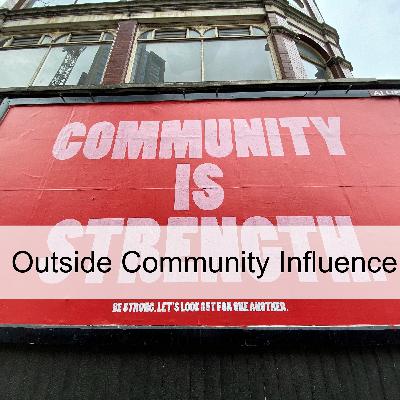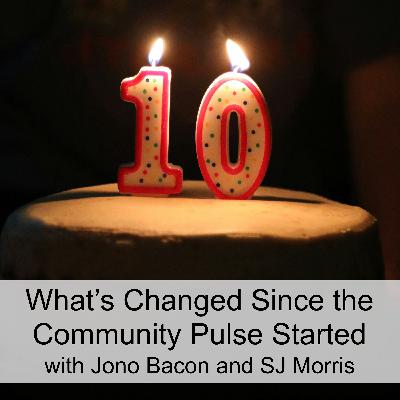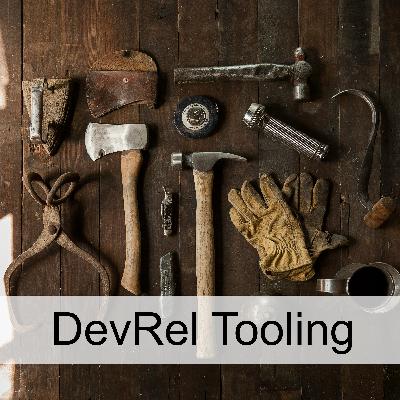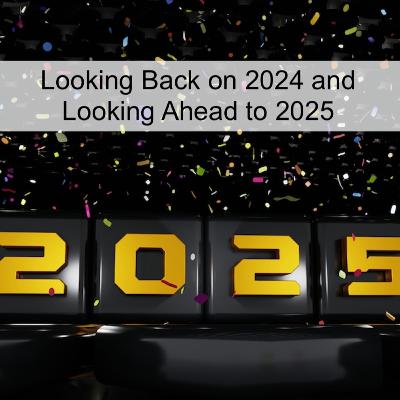What is Maturity? (Ep 91)
Description
Recently, the topic of DevRel maturity sparked a conversation: What qualities define a mature community and a seasoned team? Join PJ, Jason, Mary, and Wesley as they share their insights on past experiences, current trends shaping the field, and key indicators to monitor as you strive to build a thriving, successful community.
Topics Discussed:
Introduction to the Concept of Maturity in DevRel and Community Programs:
Mary Thengvall introduces the topic of maturity in community programs, DevRel teams, and broader community growth, asking the co-hosts for their views on what it means for a program or team to be “mature.”
The discussion explores maturity from different perspectives: internal community management, external community engagement, and the use of data in measuring maturity.
The Definition of Maturity:
PJ Haggerty argues that the term “mature” is often used ambiguously, similar to how the word "enterprise" is applied. He suggests that DevRel programs may be mistakenly seen as mature just by having a larger team, but he disagrees with this simplistic view.
Wesley Faulkner offers multiple angles for assessing maturity:
Internal maturity: Does the company have seasoned community managers, strong goals, clear expectations, and good internal collaboration across departments?
External maturity: Does the community have a consistent base of returning members, active engagement, and is it large enough to support initiatives like ambassador programs or moderator roles?
Scalability: A mature community allows for growth, enabling more opportunities for collaboration, feedback, and scaling programs effectively.
Maturity in the Context of Company History:
Mary Thengvall reflects on the significant data her company, Kamunda, has accumulated since 2013. She points out that while having 11 years of data seems like a huge advantage, it only becomes truly valuable if it is actionable. She emphasizes that being able to use data to make decisions is a key sign of a mature program.
Jason Hand stresses that merely collecting data without acting on it is a waste, and processes need to be built around data to drive positive outcomes. He highlights that having a clear vision and goals is integral to creating a mature team and community.
Challenges in Community Maturity:
PJ Haggerty contrasts the maturity of external communities. He shares his experience with the Ruby and Rails community, which was once immature but matured as the open-source community grew. The challenge is that a community’s maturity cannot exist in isolation — it depends on the external community's growth alongside the internal team’s development.
The maturity of community data also plays a critical role. Mary Thengvall questions whether it is possible to continue calling a community mature if much of its active base has shifted or churned due to evolving products or other factors.
Evaluating and Using Data:
The episode explores the effectiveness of metrics used to evaluate community programs. PJ Haggerty criticizes Net Promoter Score (NPS) as outdated and unreliable, especially in the current context where personal interactions (such as with a developer advocate) might skew the score.
Wesley Faulkner discusses how metrics can be “Uberfied,” meaning that overly simplistic metrics like star ratings may not accurately reflect the quality of engagement within a community.
Mary Thengvall discusses the importance of understanding the purpose behind collecting metrics. Are metrics gathered for the sake of collection, or do they inform decisions about program improvements?
The Evolution of Community Programs:
Jason Hand emphasizes that community maturity is a moving target. Teams and priorities evolve, and practices that were considered best practices a few years ago may no longer hold true. Maturity is not a one-time achievement but a continuous process of adaptation.
Mary Thengvall adds that there’s a difference between having a mature program that runs smoothly with minimal manual effort and the early-stage iterative phase that is often more experimental and adaptable.
Impact of External Growth and Organizational Expectations:
Jason Hand asks whether the maturity of a community is driven by organizational expectations or if a mature community is the result of consistent iteration and learning over time.
Mary Thengvall shares that her own career trajectory is impacted by the maturity of her team and program. She reflects on the challenge of finding new ways to innovate when things feel “settled” and running smoothly, highlighting the balance between growth and stability.
Key Takeaways:
- Maturity in DevRel and community programs is a multi-faceted concept involving internal team development, external community engagement, and the use of data to inform decisions.
- A mature community program requires both internal synergy within the company and active, engaged community members outside the organization.
- Data is crucial for maturity, but it must be actionable. Collecting metrics without using them for decision-making does not lead to growth.
- Maturity is an ongoing process, and what was once considered mature can quickly become outdated. Continuous iteration and adapting to new challenges is key.
- The maturity of external communities and their relationship with the internal team play a major role in the overall success and scalability of community programs.
Action Items:
- Community Managers: Evaluate the maturity of your program from internal and external perspectives. Are you actively engaging your community? Are internal stakeholders aligned with the value of community?
- DevRel Teams: Focus on making your community scalable by creating processes that support growth and enable external members to contribute meaningfully.
- Organizations: Use data-driven decision-making but ensure that the data you collect is relevant and leads to actionable outcomes. Revisit your metrics and evaluate whether they are still valid and useful.
- Leaders in DevRel: Consider how community maturity affects the growth of your program. Are you in the iterative stage, or are you moving toward a more stable, self-sustaining model?
Key Words and Themes:
Community Maturity
Data and Metrics
External Community Engagement
Internal Team Collaboration
Mature DevRel Program
Scalability
Iterative vs. Mature Programs
Actionable Data
Continuous Evolution
Best Practices
Net Promoter Score (NPS) Criticism
Uberfication of Metrics
Transcript
[00:00:13 ] Mary Thengvall: Hi, everybody. Welcome back to another episode of Community Pulse. I'm Mary Thengvall, and I brought up this topic to the team recently as something that I've been curious about and thinking a little bit more about.
[00:00:26 ] Mary Thengvall: And I'd love to get everybody's opinion on it. So the idea of the maturity of community programs or the maturity of. A community or the maturity of a team and trying to figure out what actually is that definition of mature in those different examples? What makes a program mature? What makes a team mature?
[00:00:50 ] Mary Thengvall: What can be done as a result of having a more mature program or DevRel team? And I'd love to get everybody's opinions on it. [00:01:00 ]
[00:01:00 ] PJ Haggerty: I think if I could weigh in for a second, I think that one of the interesting things here is the word you mentioned, the word mature. Like 17 times which is good, but I also feel like maturity is in some ways similar to when we, when tech companies use the word enterprise, what does that mean?
[00:01:15 ] PJ Haggerty: It can mean a lot of different things to a lot of different people. And a lot of, in a lot of cases, I think that maturity, when we look at like a DevRel team is. skewed.
[00:01:27 ] PJ Haggerty: I don't think that's the same metric as. I've never seen a DevRel team that says, okay, so we have junior DevRel and mid level DevRel, senior DevRel, product managers, and communication is managed by this other part of the team. I think most people are basically saying a DevRel program is mature, if There's more than one person.
[00:01:49 ] Mary Thengvall: Really?
[00:01:49 ] PJ Haggerty: I think external people who view DevRel say there's more than one person. Clearly we have a mature DevRel program. I disagree with that, but I think it's a thing. [00:02:00 ]
[00:02:00 ] Wesley Faulkner: In terms of community and a mature community, I think of it in multiple facets and you can pick which one.
[00:02:06 ] Wesley Faulkner: Resonates with your initial thought, Mary, is that there's a maturity in terms of when you're creating a community, there's a lot of, let's figure this out, like how we're going to run this, let's build up the playbooks. Let's build in the process, let's build in the connections internally.
[00:02:21 ] Wesley Faulkner: Oh, a base of maturity. Another way of looking at it is from the people who are involved internally in community. Do you have a seasoned community manager? Do you have strong enough goals? And clear expectations. Do you have a g




















